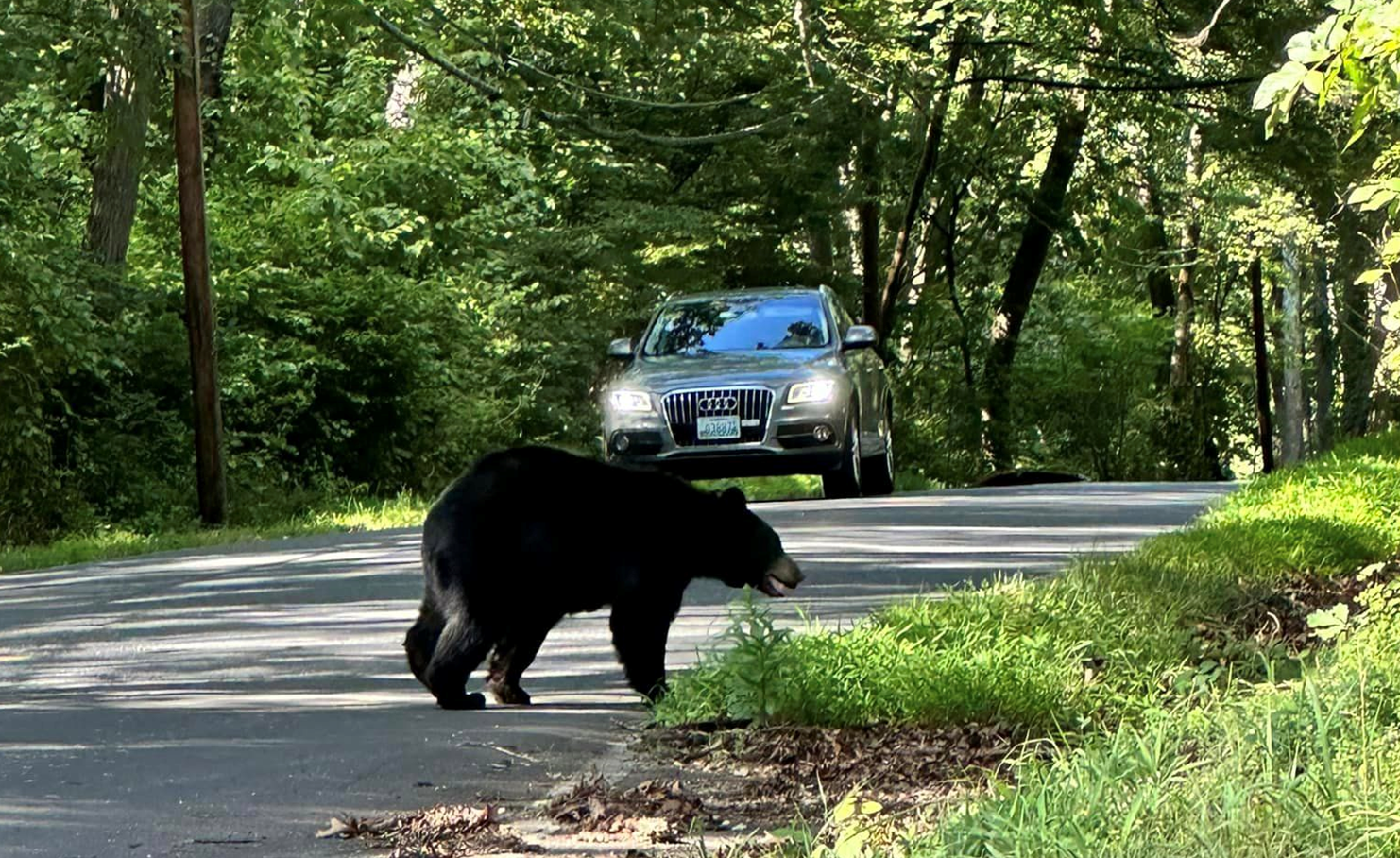Reprinted from the 8/16 Poolesville Town Hall blog:
People share the responsibility to avoid conflicts with bears. The best way to avoid bear problems is to take precautions to not attract them in the first place. Trash and bird feeders are the most common attractants responsible for luring bears to human dwellings. Pet food, charcoal grills, fruit trees, and gardens may also attract bears. Once a bear finds food around your home, it will likely return.
To minimize bear problems on your property:
- Reduce garbage odors. Rinse food cans and wrappers before disposal.
- Compost vegetable scraps properly away from house.
- Keep meat scraps in the freezer until garbage pickup day.
- Wash garbage cans regularly and use lime to cut odors.
- Keep garbage cans in a bear-proof container or in an enclosed building until trash pickup.
- Remove bird feeders in the spring. If you persist in feeding during summer, remove seed, suet, and hummingbird feeders at night.
- Keep pet food inside.
- Keep barbecue grills and picnic tables clean.
- Use an energized fence to keep bears out of beehives, sweet corn, fruit trees, and berry patches. (An energized fence is powered by a low-impedance, high –voltage energizer that provides a short-duration, high-energy impulse.)
- Barking dogs, bright lights, and noisemakers will sometimes discourage bears from coming into an area.
Strategies for Minimizing Bear/Human Conflicts
Bears can easily become used to human activities. This occurs especially when bears learn to associate people with food. Unfortunately, this can lead to a bear losing its natural fear of people. Bears are intelligent, opportunistic feeders. They will return to places where they have found an easy meal. Human habituated bears can create situations that are dangerous for both humans and bears.
The DNR-Wildlife & Heritage Service has implemented several strategies to meet the demand of Maryland’s growing black bear population.
- A wildlife response team is on call 24 hours a day, seven days a week, to respond to emergencies. DNR staff also provides aversive conditioning.
- A comprehensive outreach and education plan is in effect to educate Marylanders and visitors about living with black bears.
If you have persistent bear problems or want more information on bears, contact your local DNR Wildlife & Heritage Service office or one of the offices listed below.
Maryland Department of Natural Resources
Wildlife & Heritage Service
Tawes State Office Building
580 Taylor Avenue
Annapolis, MD 21401
Telephone: 410-260-8540
Toll Free in Maryland: 1-877-620-8DNR, Ext. 8540
TDD: 410-974-3683

